Keywords: Sustainable Energy
-

AUSTRALIA
- Andrew Hamilton
- 24 October 2018
7 Comments
If that is the world of politics then the cooperative energy and the graciousness seen in the Phelps cavalcade and the Liberal candidate are superfluous to requirements. As with refugees despatched to detention, the light and intelligence newly elected MPs bring to Australia will quickly fade from their eyes.
READ MORE 
-
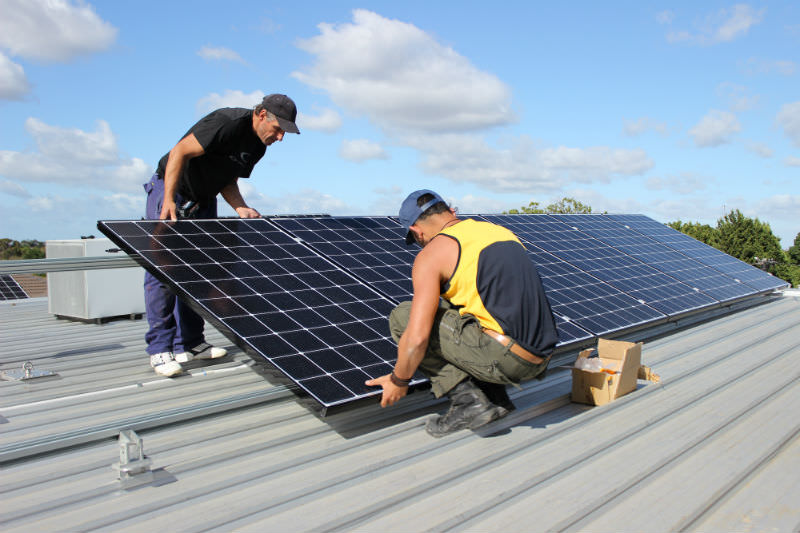
ENVIRONMENT
This is Australia's looming inequality issue. Those who can take advantage of the energy revolution will have lower bills and more comfortable living conditions during the frequent extreme weather events we'll experience with climate change. Those who can't will be left reliant on a dirty, aging and increasingly expensive electricity grid.
READ MORE 
-
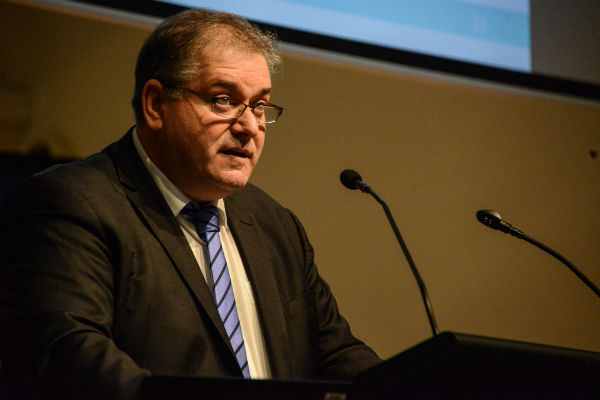
ECONOMICS
- Joe Zabar
- 27 February 2018
'Francis' statement is not one merely for theological or academic contemplation. It is in effect Francis' call to establish a new benchmark for our economy, one where exclusion and inequality are no longer a natural and accepted consequence of its operation.' Director of Economic Policy for Catholic Social Services Australia addresses the CSSA annual conference in Melbourne, February 2018.
READ MORE
-
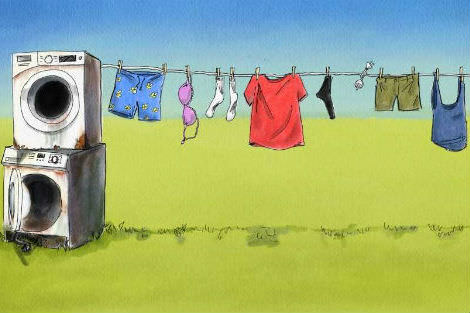
ENVIRONMENT
- Greg Foyster
- 08 November 2017
8 Comments
Much artistic response to the environmental crisis is negative , either criticising the excesses of the present, or predicting destruction in the future. Where are the positive stories of a new, sustainable culture? This is the greatest contribution art can make, yet for every vision of a better world there are a hundred bleak dystopias.
READ MORE 
-
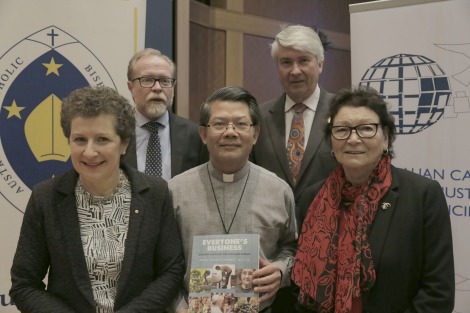
RELIGION
- Frank Brennan
- 11 September 2017
2 Comments
The real call of Everyone's Business is to move beyond them and us to admitting that there is only us. If we are truly to build an inclusive and sustainable economy, it can't be just those in full time paid employment who are part of that economy. We take seriously the principles of neo-liberalism, letting the market decide. But we set limits on the market for the common good.
READ MORE
-

RELIGION
- Frank Brennan
- 30 August 2017
6 Comments
'There was one controversy in which Lionel Bowen was involved that does provide good lessons for the contemporary Catholic considering the desirable law or social policy on a contested issue - lessons for the citizen weighing what is for the common good. Back in 1979 there was debate in the Parliament on a motion which was framed to stop Medicare funding of abortions. Bowen, a strict Catholic, was strongly opposed to the motion. He did not think the motion was about abortion. He thought it was about money.' Frank Brennan's 2017 Lionel Bowen Lecture
READ MORE
-

AUSTRALIA
Universal health care is an ostensibly bipartisan prerogative, but what it actually means and how it's achieved is a somewhat moveable feast. Spending, we are told, is unsustainable as the population ages and we move toward ever-more personalised and technologically-advanced treatment paradigms. The objective of this rhetoric is to rationalise the privatisation of our health system by stealth. The latest wages figures are something of an inconvenient truth in this 'unsustainable spending' fiction.
READ MORE 
-

RELIGION
- Frank Brennan
- 08 May 2017
1 Comment
Our Church is presently a strained, outdated social institution with an exclusively male hierarchy and clergy. But it is also the privileged locus for us to be called to the banquet of the Lord sharing theology and sacrament which have sustained the hearts and minds of similar pilgrims for two millennia. Thank God for Pope Francis who is showing us the way, helping us to find meaning in our changing and chaotic world, putting a fresh spring in the step of all those Catholics holding in tension the prophetic and the practical, the theological and the humanist, the tradition and the contemporary reality.
READ MORE
-
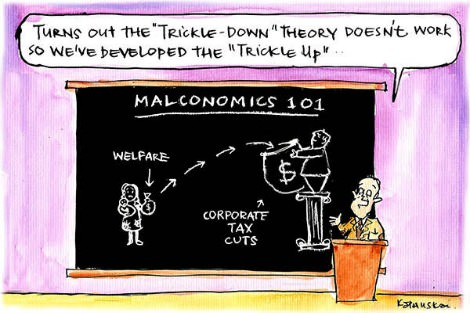
AUSTRALIA
- Frank Brennan
- 10 April 2017
16 Comments
In an age of 'budget repair', social policy risks becoming just a sidebar to economic policy which is a contest of ideas about how best to grow the size of the pie thereby providing a slice for 'the deserving poor' without having to redistribute too much of the pie, while 'the undeserving poor' drop off the edge as they would have anyway. For those of us schooled in Catholic social teaching, the so-called 'undeserving poor' are the litmus test of our commitment to the human dignity of all persons.
READ MORE 
-
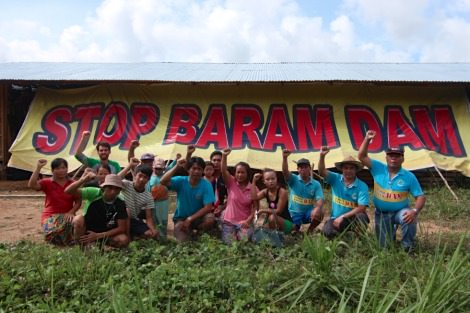
ENVIRONMENT
- Fiona McAlpine
- 17 March 2017
6 Comments
One year ago, a remarkable win for indigenous rights took place in a little-reported corner of Asia. On the island of Borneo, rainforest communities won a long fight against a hydroelectric dam that was to be built on their land. After more than two years of muddy resistance, the dam plans were shelved, and land rights were restored to the indigenous population. This was a landmark win, in more ways than one.
READ MORE 
-
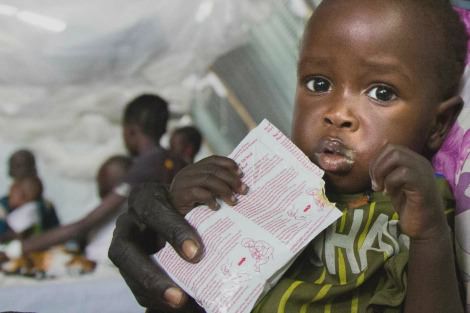
INTERNATIONAL
- Francine Crimmins
- 24 February 2017
2 Comments
This week the UN announced that more than 20 million people across four African countries face starvation in the coming months. As the World Food Program struggles to feed the starving, they are also reminding people that where there is great need in the world, there is often great waste. In Australia, the Department of Environment and Energy estimates food waste is costing households $8 billion every year. This is twice what the UN predicts it needs to cease a famine in four nations.
READ MORE 
-
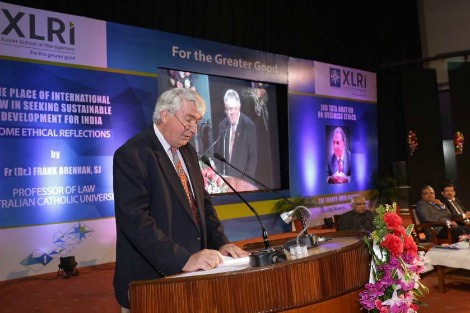
ENVIRONMENT
- Frank Brennan
- 02 December 2016
9 Comments
Neither India nor Australia can go it alone when confronting a global issue such as climate change. India cannot disregard the effects on other nations when it adopts laws and policies for alleviating the poverty of the poorest of the poor. Australia cannot disregard the effects on other nations when it considers restricting the availability of resources for export such as coal which might help provide electricity for the world's poorest citizens.
READ MORE 